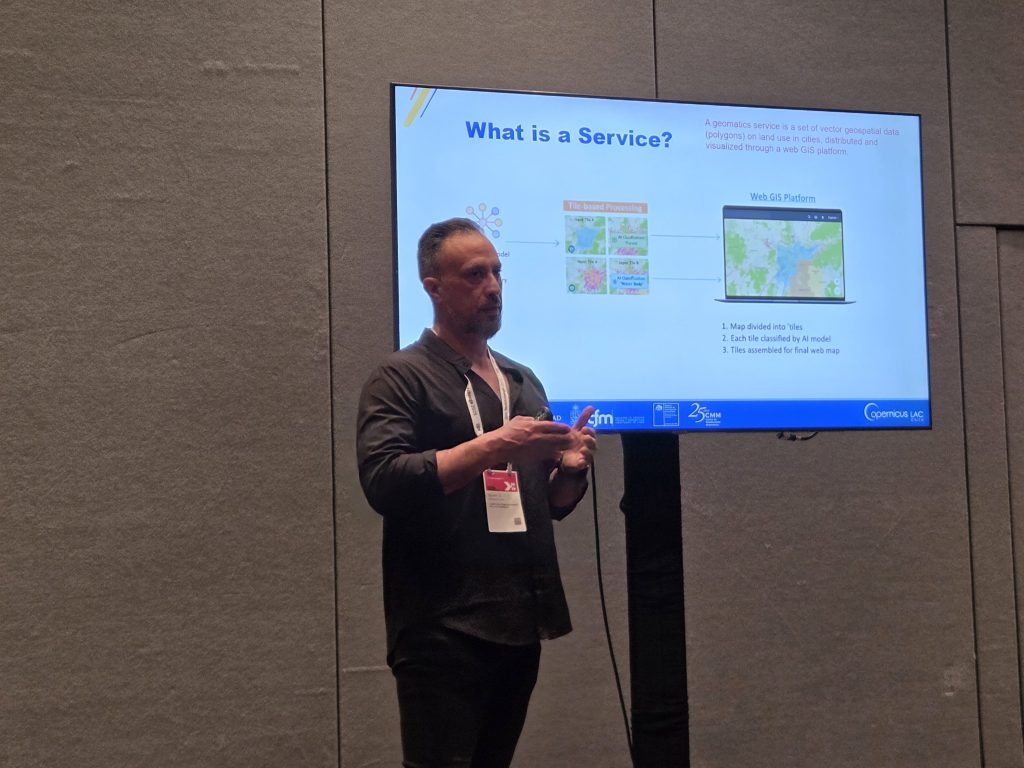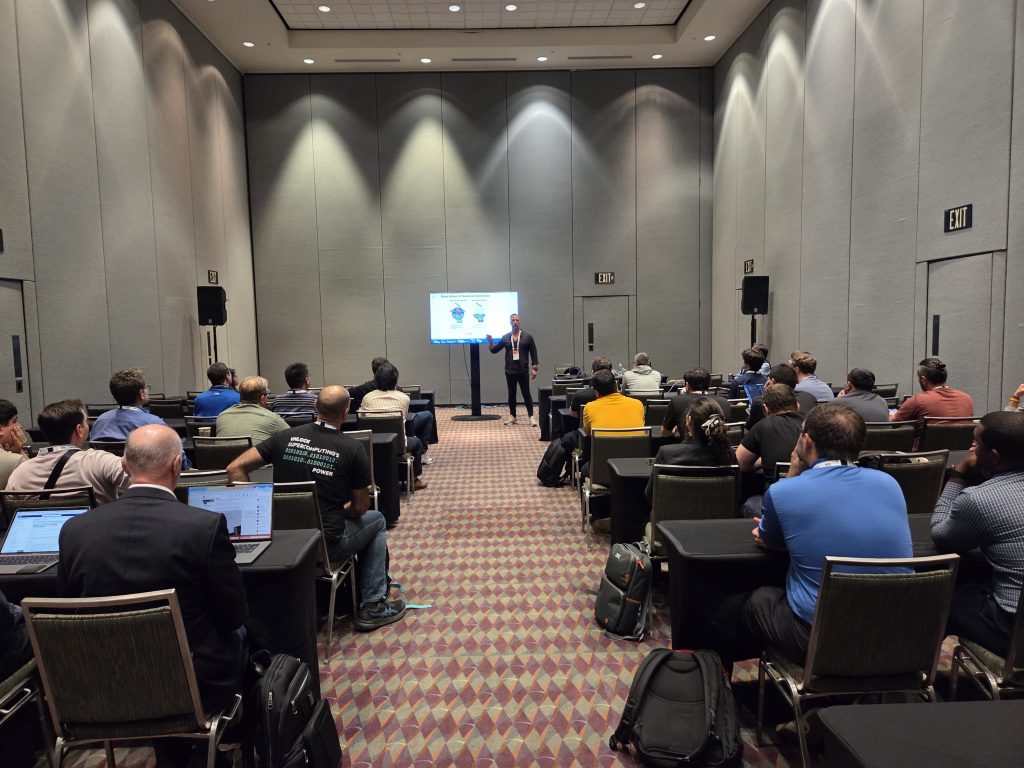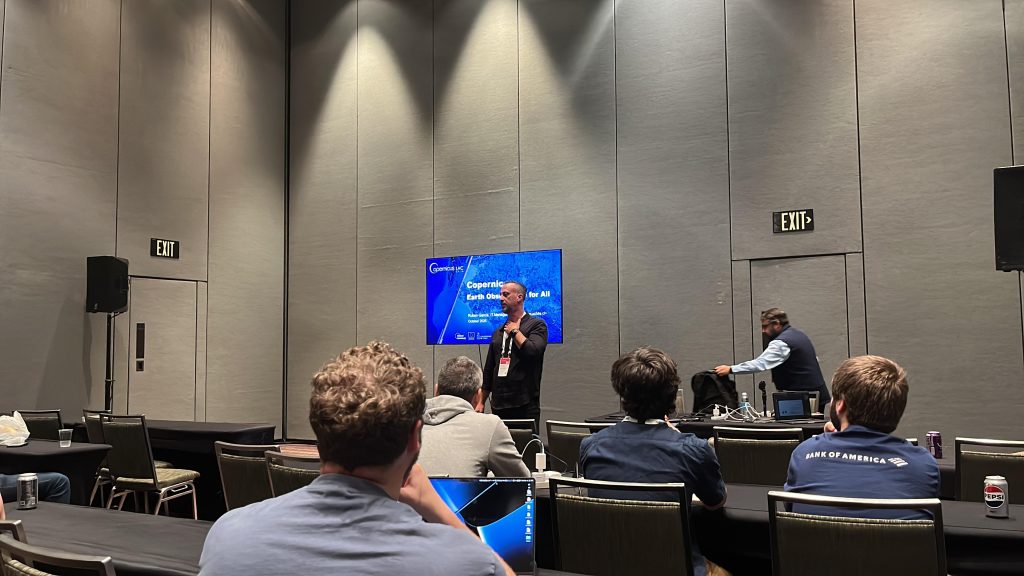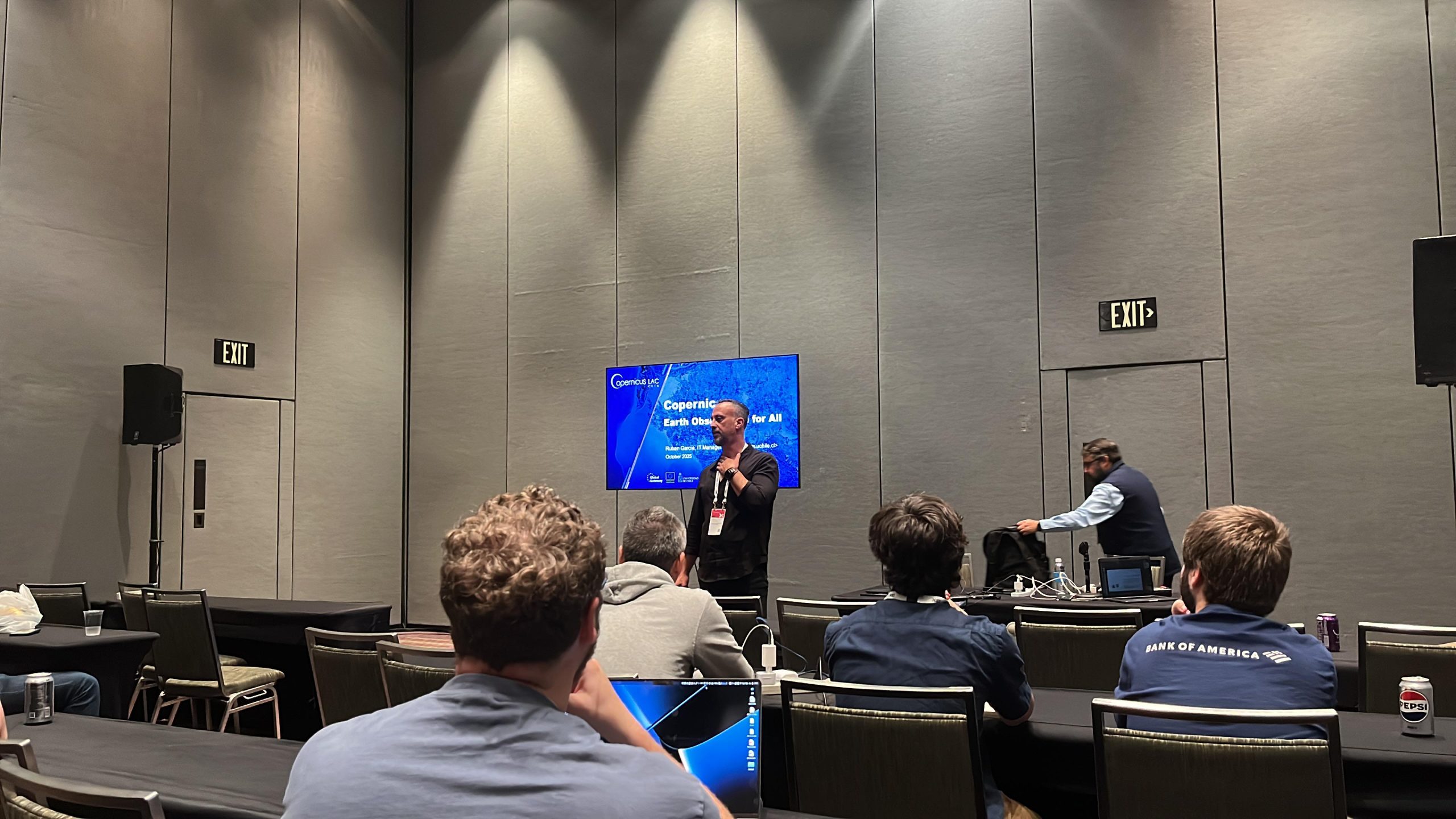During the first week of October, the global IBM TechXchange 2025 event was held in Orlando, USA. It is one of the most important events in its field, bringing together thousands of leaders, developers, architects, and innovators every year to share real-world use cases, technological advances, and new tools from the IBM (International Business Machines) ecosystem.
The 2025 edition was attended by around 8,000 participants from more than 82 countries, creating a global platform for the exchange of knowledge in areas such as artificial intelligence, hybrid cloud, automation, and software development.
Representing CopernicusLAC Chile was Rubén García, manager of the Information Technology team, who presented the program’s progress as an initiative co-financed by the European Union and the University of Chile.
“My presentation addressed the mission and technological development of the center, which provides computing infrastructure, storage, and Earth observation services for Latin America and the Caribbean. I showcased our high-performance infrastructure, as well as the data and service federation models that enable the integration and distribution of geospatial information among different countries in the region,” said García.
During its years of operation, CopernicusLAC Chile has incorporated IBM technologies that were part of the technical discussions held during the Texchange 2025 sessions. Rubén García, who holds a master’s degree in data science, explains that “IBM Scale storage solutions (ESS/Scale System) are implemented in our data center for high-performance online access storage for the latest satellite products. In addition, an IBM Tape Library robot was integrated, which serves as a historical repository and long-term backup, optimizing the use of resources and ensuring the safe and efficient preservation of the entire satellite data collection.”
Artificial Intelligence (AI) has been gaining ground in innovation and technology events for years, and its implementation in Earth Observation (EO) is not far behind. “It is a fundamental tool in the processing and analysis of satellite data, as it allows the generation of value-added services aimed at different sectors, such as mining, environmental management, and the study of climate change. These models are constantly evolving, improving their ability to adapt to the complexity, heterogeneity, and growing volume of data from satellites and terrestrial sensors,” explains García.
CopernicusLAC Chile’s participation in IBM TechXchange 2025 reinforces its commitment to technological innovation and international collaboration, advancing toward its goal of driving digital and scientific transformation in Latin America and the Caribbean by promoting open access to data and services that contribute to sustainable development and a better understanding of the planet.






